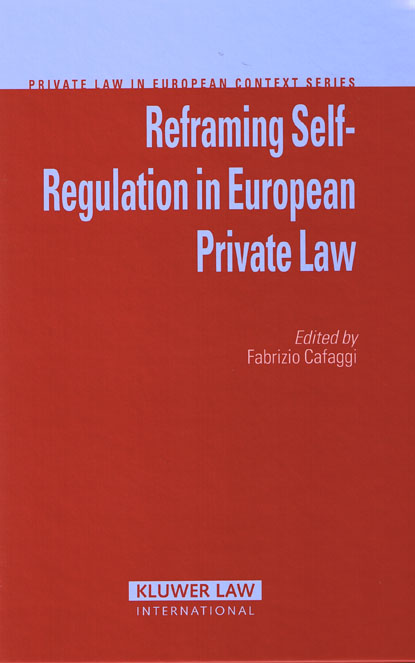
Increasingly, European companies in a variety of business sectors as well as professional groups are taking self-regulatory initiatives as a means of gaining competitive and protective leverage in a meta-regulatory environment. While these initiatives have obvious legal and economic advantages for the entities and principals who take them, the phenomenon of self-regulation raises profound issues for competition law and even for constitutional law. Although deeply grounded in legal theory, such issues have profound and growing significance for practitioners in many fields of law.
In this thought-provoking book thirteen outstanding authorities from various EU jurisdictions examine the legal basis of self-regulation and its function in the process of European legal integration, with particular reference to European private law. The authors offer in-depth analysis of self-regulation in the context of current economic and political conditions in Europe, and investigate the effects of self-regulation on such societal factors as the following:-